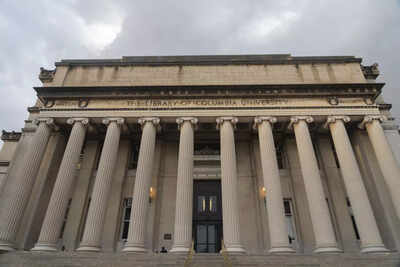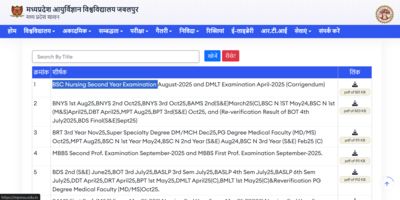For all its chest-thumping about “protecting meritocracy,” the Trump administration has quietly engineered something far more consequential than a policy shift: A looming federal admissions surveillance regime—and it has bought the keys to elite university gates with hard cash. Columbia and Brown, two of America’s most storied universities, have just paid their way out of one set of federal investigations only to mortgage their independence in another.The settlements—over $220 million for Columbia, $50 million for Brown—were sold to the public as a reckoning over alleged violations of anti-discrimination laws, including accusations that the universities had tolerated antisemitism on campus. But buried beneath the headline numbers is the real currency of this deal: a forced commitment to hand over detailed, race-linked admissions data to Washington.The data hasn’t yet been delivered. But the terms are clear: Every applicant, admitted or rejected, will have their GPA, standardised test scores, and racial identification packaged and sent to the Department of Justice. Never in U.S. higher education history has a federal administration demanded this level of admissions granularity—and it has secured it not through open legislation, but through the cudgel of financial settlements.
The price of compliance
Money buys many things. In this case, it buys leverage. By extracting nine-figure payouts, the Trump administration has set a precedent: Any university facing civil rights claims can be made to choose between crippling legal warfare or financial surrender coupled with data transparency on Washington’s terms.Columbia and Brown opted for the latter, agreeing not only to pay vast sums earmarked for “federal priorities” but also to open their admissions books to federal inspection. Claire Shipman, Columbia’s acting president, has framed this as compliance with lawful requests, insisting the university is simply providing “data to which the government is entitled.” Brown’s Christina Paxson has described the decision as a chance to showcase “the strong academic qualifications of the classes we admit.”But neither statement hides the truth: This is capitulation under duress, with financial penalties functioning as both punishment and leverage to enforce a political agenda. The message to other universities is unmistakable: Toe the new line on admissions or pay up—and hand over your files anyway.
The weaponisation of transparency
At first glance, it sounds noble: More data means more fairness, right? Wrong. This is data in search of a target. Conservative activists have spent decades trying to dismantle race-conscious admissions. After their Supreme Court victory in 2023 (Students for Fair Admissions v. Harvard and UNC), they now want evidence that colleges are still using “proxy preferences” for race. The Columbia and Brown deals promise exactly that ammunition.Critics have warned that the government could misuse this data to suggest that even race-neutral efforts to foster diversity are illegal. Outreach to poor neighbourhoods, valuing first-generation status, considering how race shaped an applicant’s life experience—all could now be painted as covert racial engineering.And make no mistake: These settlements will not remain confined to their two Ivy League signatories. The Justice Department has already subpoenaed Stanford and several University of California campuses for similar data. The template has been set.Once this database is built, it won’t be limited to rooting out discrimination. It can be wielded to enforce test-score orthodoxy, dismantle outreach programs, and chill any experiment in broadening opportunity. It sets a precedent: Federal funding now comes with a demand for universities’ most sensitive internal files, to be mined for ideological infractions.
The myth of meritocracy
There’s another myth baked into this deal: Shifting admissions back to test scores and GPAs creates meritocracy. Data from the College Board tells a different story. In 2024, only 1% of students scoring between 1400–1600 on the SAT were Black, while 27% were Asian, despite 12% of test-takers being Black and 10% Asian. Standardised tests reflect not just intelligence or hard work, but access to expensive prep courses, high-performing schools, and stable family wealth.Yes, Asian students generally perform well on these measures, yet history shows that high scores do not shield them from discrimination. The Harvard lawsuit unearthed decades of “personality score” manipulation that suppressed Asian admits despite academic excellence. The federal government acquiring this data will not magically fix those biases. It is likely to make racial disparities more visible, more litigated, and more politically charged, without improving fairness for anyone.
The Supreme Court’s ruling: Narrow, but weaponised broadly
The 2023 Supreme Court decision banned explicit race-based admissions, but it did not outlaw consideration of race as part of personal experience. Chief Justice Roberts himself acknowledged that applicants could write about how race shaped their character or ambitions. Yet the Trump administration’s February 2025 guidance—now folded into these settlements—insists that even seemingly race-neutral policies that increase minority representation may be illegal. Attorney General Pam Bondi’s latest directive takes it further: Scholarship programs targeting underserved areas or first-generation students could be struck down if they indirectly benefit racial groups.This is the interpretation Columbia and Brown are now validating under duress, by agreeing to give Washington the data it needs to pursue these legal theories against them—and against everyone else.
Why this should alarm everyone, not just Ivy applicants
This isn’t about two Ivy Leagues making peace with a hostile administration. It’s about the erosion of academic self-governance nationwide. If Washington can dictate admissions policy by threatening funding and demanding racial data dumps, the future of college admissions won’t be decided by educators—it will be decided by politicians.The result won’t be more fairness for sure. It will be more litigation, more politics, more zero-sum racial conflict over who “deserves” a seat at the table. Universities will narrow their applicant pools, retreat from community outreach, and double down on test scores—not because they believe it’s right, but because they fear the spreadsheet Washington holds over them.TOI Education is on WhatsApp now. Follow us here.






